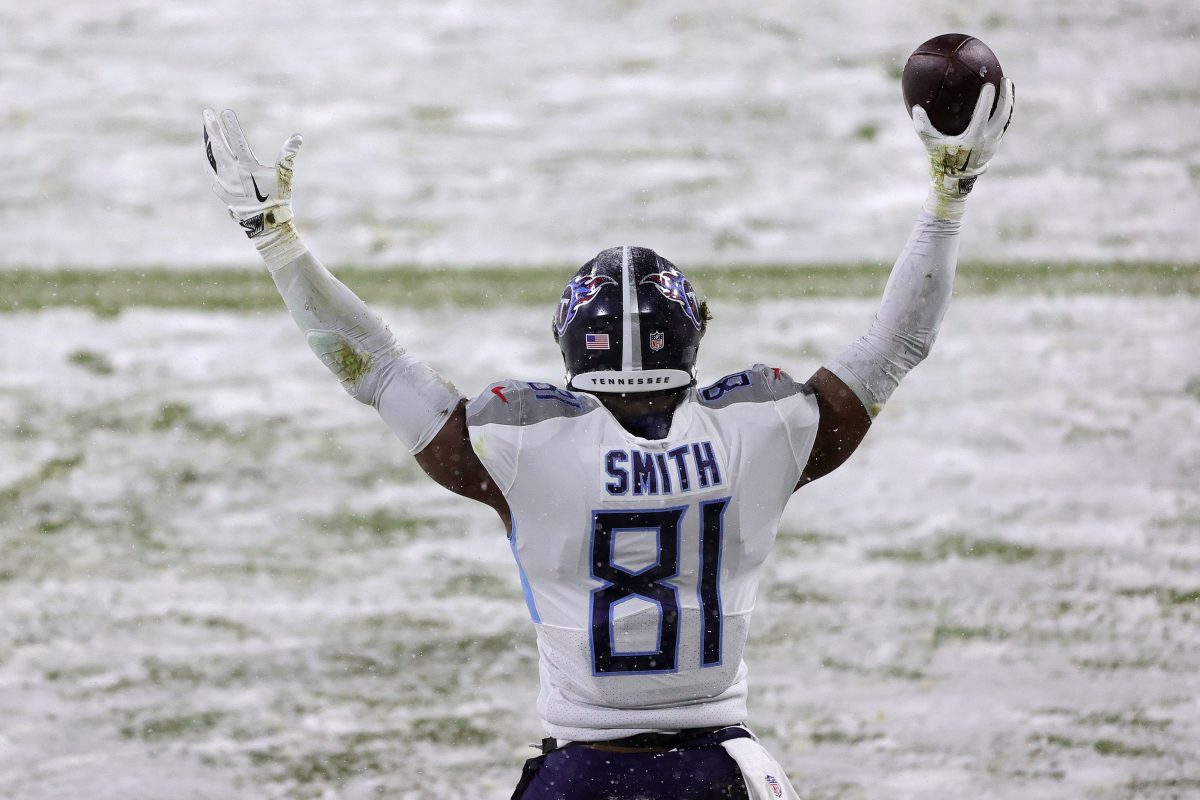A little bit after lunchtime on Monday, the New England Patriots and former Tennessee Titans tight end Jonnu Smith agreed to a four-year deal worth $50 million that includes $31.25 million fully guaranteed, agent Drew Rosenhaus told ESPN’s Adam Schefter.
What seemed like a splurge for the traditionally thrifty Patriots turned out to be just the tip of the iceberg, as New England had committed to spend nearly $200 million, and counting, by dinnertime.
The spending spree took place during what is known as the legal tampering period, a 52-hour window during which all pending unrestricted free agents are allowed to enter preliminary negotiations with organizations throughout the league, not just the ones that still hold their rights.
Established in 2013, the period was meant to serve as a way to curb the unregulated and illegal tampering that routinely takes place during the offseason before the official start of free agency on March 17 at 4 p.m. EST.
It was not designed to be a way for teams like the Patriots, and the slews of other teams that reached agreements on Monday, to officially bring players into the fold early, as a memo describing the window outlines.
“[P]rior to the beginning of the new League Year it is impermissible for a club to enter into an agreement of any kind, express or implied, oral or written, or promises, undertakings, representations, commitments, inducements, assurances of intent or understandings of any kind concerning the terms or conditions of employment offered to, or to be offered to, any prospective Unrestricted Free Agent for inclusion in a Player Contract after the start of the new League Year,” per the memo.
While it would appear to be in a violation of that memo, agents like Rosenhaus informing ESPN reporters like Schefter about deals their clients have agreed to isn’t really a problem in and of itself because, since all teams are on a level playing field, no one club has an advantage over any other.
But with the image-conscious NFL likely hoping for the official start of free agency on the 17th to be a marquee offseason event on par with the Draft and Combine, it seems like it might be an issue for the league.
After all, if teams and players can agree to binding deals before the start of free agency and go so far as to announce them (albeit unofficially via agents and other third parties), what’s the point of having an official start date to free agency other than the final second ticking off the Super Bowl’s game clock?
Questions about the league’s legal tampering period have been raised before, but the egregious nature of nearly $200 million worth of salary being committed by a team to free agents who are not technically free agents may lead to the league taking action — or at least cracking down on agents like Rosenhaus leaking out news about upcoming signings before the league is good and ready.
The Charge will help you move better, think clearer and stay in the game longer. Subscribe to our wellness newsletter today.



















